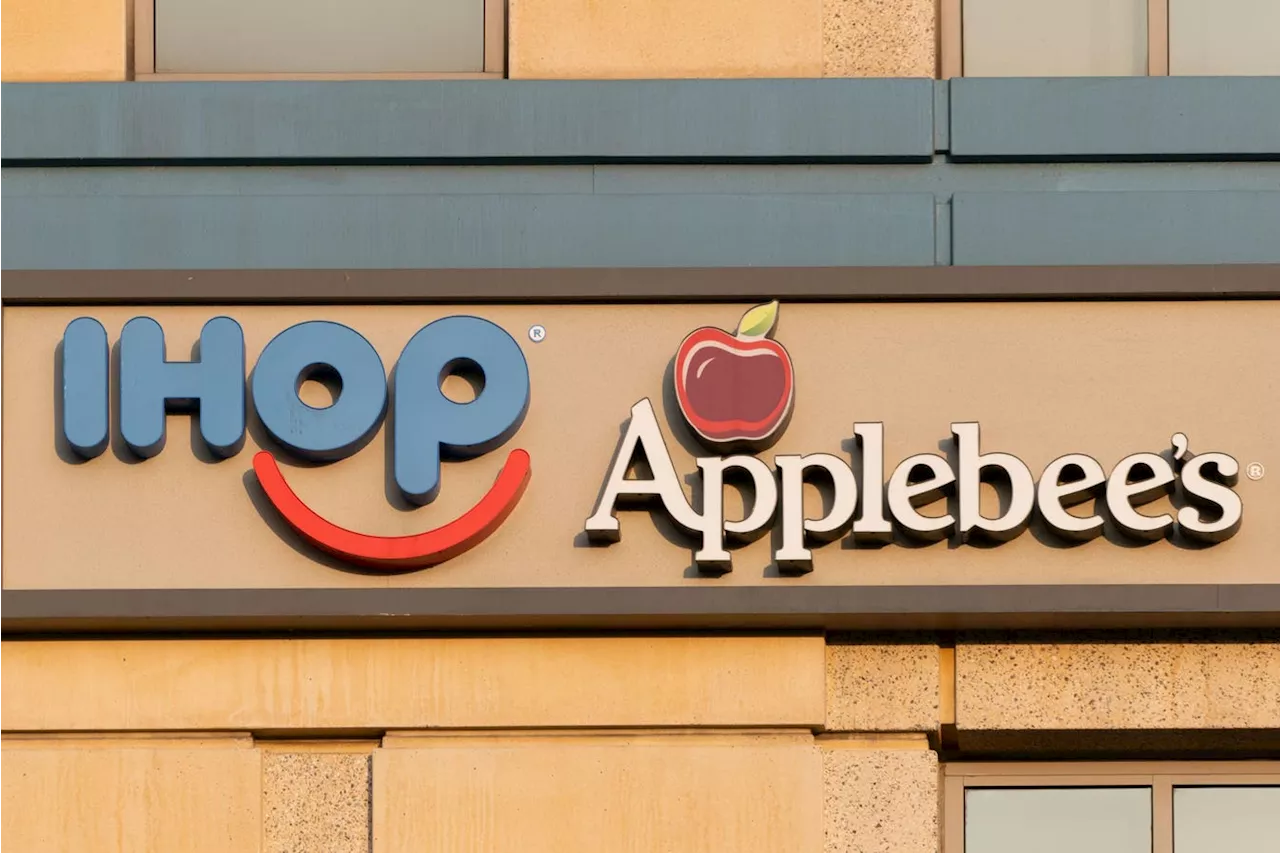Business
Dine Brands Shareholders Face $600 Million Loss Amid Board Neglect

Shareholders of Dine Brands have experienced a staggering loss of nearly $600 million, as the company’s stock value plummeted by about 70 percent. The significant decline has raised concerns over governance practices, particularly the board’s lack of action and accountability during this turbulent period. Financial expert Jim Osman emphasizes that the responsibility for this crisis lies primarily with the boardroom, not the broader market conditions.
The situation at Dine Brands, which oversees popular restaurant chains such as IHOP and Applebee’s, is marked by empty board seats and inadequate oversight. Currently, three board positions remain vacant, which Osman argues reflects a severe governance failure. As the company struggles with declining profitability and diminishing trust among investors and franchisees, the board’s inaction has compounded the crisis. Rather than addressing the company’s challenges, the board has allowed the situation to deteriorate, failing to uphold its duty to shareholders.
Several board members have not invested personal capital in the company, with long tenures that exceed healthy governance standards. For instance, Richard Dahl has served since 2004, while Howard Berk has been part of the board since 2009. Both have minimal ownership stakes, raising questions about their commitment. The CEO’s ownership stands at a mere 1.2 percent. This lack of financial investment undermines the board’s credibility as stewards of shareholder value, especially in a market where passive funds rely on governance discipline.
Notably, major investors like Vanguard, BlackRock, and State Street have clear expectations regarding board member ownership and accountability. Dine Brands appears to fall short of these standards, as the board lacks meaningful ownership, has long tenures, and fails to fill critical vacancies. This misalignment can lead to further deterioration in company performance, as passive investors—who collectively own a substantial portion of the company—may hesitate to support a board that does not prioritize governance.
Financially, Dine Brands is grappling with alarming metrics. EBITDA has decreased by 21 percent, while net income has fallen by a staggering 60 percent. Additionally, free cash flow has experienced double-digit declines in what should be a steady revenue model driven by royalties. The board’s decision to cut the dividend from 51 cents to 19 cents was an effort to save costs, but it has also stripped income from shareholders. Just weeks later, the board authorized $50 million in share buybacks, which some view as a superficial attempt to boost confidence without addressing underlying issues.
The lack of urgency in governance is underscored by the empty seats in the boardroom during one of the company’s most critical periods. These vacancies symbolize neglect rather than oversight. Despite having individuals like Chris Marshall and Tom Lewison, who possess the necessary experience, the board has shown little interest in filling these roles. This governance breakdown leaves shareholders to bear the brunt of the consequences, while the board appears detached from the operational realities facing the company.
Franchisees, who are integral to the company’s success, have also been impacted by the board’s decisions. They bear the operational risks, managing remodels and navigating rising costs. The board’s recent directive discouraging franchisees from engaging with analysts or investors reflects a troubling culture that prioritizes silence over transparency. This lack of communication can erode trust and ultimately harm long-term value.
For Dine Brands to recover, it is essential to establish a board capable of effective governance. This entails appointing individuals with deep knowledge of the restaurant industry, capital allocation, and turnaround strategies. Directors must have a significant stake in the company to align their interests with those of shareholders. Compensation should be linked to performance metrics that reflect true operational success, rather than superficial adjustments.
Moreover, transparency must be restored through open discussions with franchisees and regular Q&A sessions following earnings announcements. This approach will help rebuild trust and foster a culture of accountability. Shareholders are not seeking radical changes but rather a board that acts in the best interests of the company and its investors.
The responsibility now lies with investors to influence the future direction of Dine Brands. Passive funds must decide whether to adhere to their governance principles or continue to support the current board, which has overseen this decline. Shareholders face a critical choice: accept the status quo or demand a board that understands the dynamics of value creation and protection.
To move forward, Dine Brands needs to fill its vacant board seats with credible operators who bring both experience and a genuine commitment to the company. Governance must be rebuilt with a focus on responsibility and performance. If the board can transform into an engaged leadership team, shareholders may see a revival in value, as the underlying strength of the brands still exists. The facts are clear: the decline in shareholder value was preventable and stems from a board that simply failed to act when it mattered most.
-

 Science4 weeks ago
Science4 weeks agoInventor Achieves Breakthrough with 2 Billion FPS Laser Video
-

 Health1 month ago
Health1 month agoCommunity Unites for 7th Annual Into the Light Walk for Mental Health
-

 Top Stories1 month ago
Top Stories1 month agoCharlie Sheen’s New Romance: ‘Glowing’ with Younger Partner
-

 Entertainment1 month ago
Entertainment1 month agoDua Lipa Aces GCSE Spanish, Sparks Super Bowl Buzz with Fans
-

 Entertainment1 month ago
Entertainment1 month agoMother Fights to Reunite with Children After Kidnapping in New Drama
-

 Business1 month ago
Business1 month agoTyler Technologies Set to Reveal Q3 Earnings on October 22
-

 World1 month ago
World1 month agoR&B Icon D’Angelo Dies at 51, Leaving Lasting Legacy
-

 Health1 month ago
Health1 month agoCurium Group, PeptiDream, and PDRadiopharma Launch Key Cancer Trial
-

 Entertainment1 month ago
Entertainment1 month agoRed Sox’s Bregman to Become Free Agent; Tigers Commit to Skubal
-

 Health1 month ago
Health1 month agoNorth Carolina’s Biotech Boom: Billions in New Investments
-

 Science1 month ago
Science1 month agoNorth Carolina’s Biotech Boom: Billions Invested in Manufacturing
-

 Top Stories1 month ago
Top Stories1 month agoFormer Mozilla CMO Launches AI-Driven Cannabis Cocktail Brand Fast








